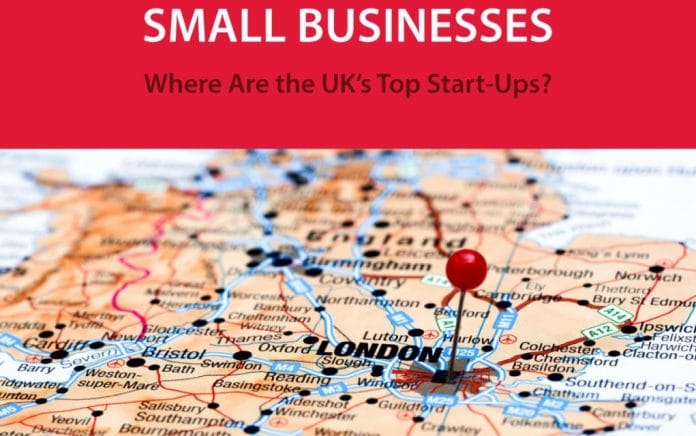Nothing beats the thrill of becoming your own boss and seeing your dreams of starting a company come to life. It can be tough starting out, but every year hundreds of start-up companies flourish making the dreams of the people behind them a reality. As a champion of everything entrepreneurial, the people at startups.co.uk wanted to dive into the statistics and see the state of the UK’s start-up landscape.
Using the last three years of the Startups 100 rankings, they plotted the location and industry of the UK’s top start-ups to see which industries are surging ahead, and which have room for improvement. Some companies were so successful they graced the Startups 100 list over multiple years, meaning the research found a total of 234 different businesses.
First, let’s see where in the country you’ll find the best start-ups:

The vote to leave the EU seemed to throw London’s economic future into uncertainty, though it may be a case of ‘out with the old and in with the new’. According to the map, London is something of a haven for UK start-ups. In fact, you can visit as many as 16 of the best start-ups in the country all within 500m of each other. Overall, London was the home of a whopping 68% of all companies in the list.

Looking deeper into the stats, England is dominating the start-up market, where you’ll find all but 10 of the best UK companies. Thanks to London’s dominance, and the inclusion of the Welsh companies, the South holds far more of the top-performing businesses than the North.
While London may be the top dog, that didn’t stop other cities shining through. Birmingham and Cardiff both provide five top start-ups, while Chelmsford is also home to three.

The research also revealed which industries are providing the best new companies and which are lacking. Technology topped the list, thanks to a large amount of local search and comparison sites helping the public find great deals on everything from new cars to cleaners.
Food and retail were also strong industries, and there were more than a few subscription box business models in the findings. Craft gins, coffee, locally sourced meat, and healthy snacks were just some of the goods being delivered every month to homes across the country. On the other side of the coin, legal, travel, recruitment, and education were some of the lower-performing industries.
http://www.viking-direct.co.uk/specialLinks.do?&ID=blog_uk_index


